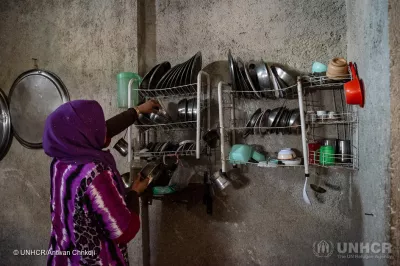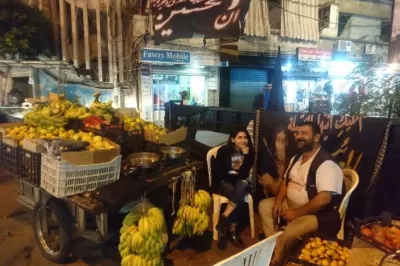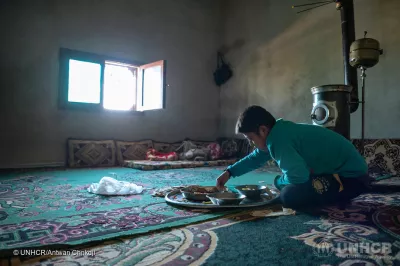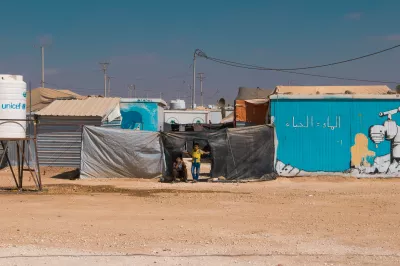The number of people displaced because of conflict or violence is at record highs, over 108.5 million by end of 2022 according to UNHCR, and the duration of their displacement now averages 10 to 15 years. This calls for longer term solutions at the nexus of the humanitarian and development world.
The Role of Financial Services in Humanitarian Crises
Financial services have a role to play in mitigating humanitarian crises. They can help forcibly displaced people build resilience by providing the resources to address shocks, for example. Access to savings and credit can enable forcibly displaced persons (FDPs) to seize economic opportunities, allowing them to start new businesses provided they have the right to work. But more needs to be done to help people rebuild their economic lives. Multiple stakeholders play important roles. For financial regulators, we recommend a focus on making it easier for FDPs to access formal financial services; for governments, we recommend integrating financial services in their crisis planning; and for financial service providers, we recommend a focus on customer-centricity whereby financial solutions are tailored to consumer needs. For donors, we recommend a focus on building financial services into longer term solutions for managing humanitarian crises.
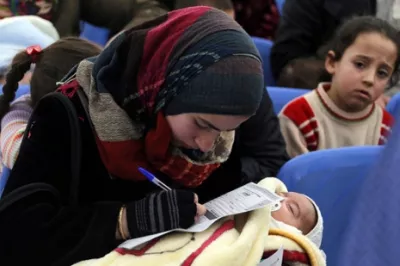
This blog series explores the role that financial services can play for displaced people. Topics include the demand for financial services among FDPs, disaster insurance, and cash transfers. The millions of refugees and people forcibly displaced within
Lessons from the Syrian Refugee Crisis in Lebanon and Jordan
Since the start of the conflict in Syria in 2011, Lebanon and Jordan have shouldered the impact of a massive influx of Syrian refugees. Today, Syrian refugees account for over 25 percent of the population of Lebanon and 10 percent in Jordan, placing immense pressure on over-stretched resources. Most of the low-income refugees rely on informal financial services and, similarly to low-income people in their host countries, one of the biggest financial challenges they face is coping with health shocks. CGAP has examined policy solutions to link humanitarian cash transfers to financial inclusion, and more broadly for increasing the resilience of FDPs and helping them build sustainable livelihoods.
Policy Resources
FDPs face barriers in accessing formal financial services often due to policy restrictions, ranging from lack of proper identification documents to too few access points to banking or mobile money. They also can face restrictions on their ability to enter local labor markets to make a living. Understanding the unique set of challenges they face is essential to overcoming obstacles that prevent broader economic and social participation.
WORKSHOP REPORT SEPTEMBER 2018
GPFI Workshop Report: Financial Inclusion of Forcibly Displaced Persons
In this workshop consensus was reached as to ‘why’ financial inclusion is important in humanitarian contexts and for FDPs in particular.
GPFI PUBLICATION NOVEMBER 2017
GPFI Policy Report: Financial Inclusion of Forcibly Displaced Persons
This G20 roadmap recommends three areas for policy action – improved global coordination, better data and evidence collection, and embedding FDP-inclusive policies in government responses.
Additional Resources
RESOURCE PAGE
FinDev Gateway Refugees Hub
This Topic Hub offers access to key resources contributed by organizations around the world who work on the topic of financial inclusion and microfinance services for refugees.
EXTERNAL PUBLICATION DECEMBER 2018
Cash Digitization: UN Collaboration, Coordination, and Harmonization Opportunities
This UN Better Than Cash Alliance’s Cash Digitization Study recommends strengthening cash assistance collaboration across UN agencies & partners, to improve coordination and harmonization.
BLOG SERIES
Financial Services in Humanitarian Crises
This blog series explores the role that financial services can play for displaced people. Topics include the demand for financial services among FDPs, disaster insurance, and cash transfers.
CGAP BLOG SERIES 2015-2016
The Arab World and Financial Inclusion During Crises
Many donors and investors focusing on financial inclusion in the Arab World are considering how to adjust or adapt their work given the level of crisis in the region. This blog series share insights from organizations working in this situation, who are documenting what they have learned.



